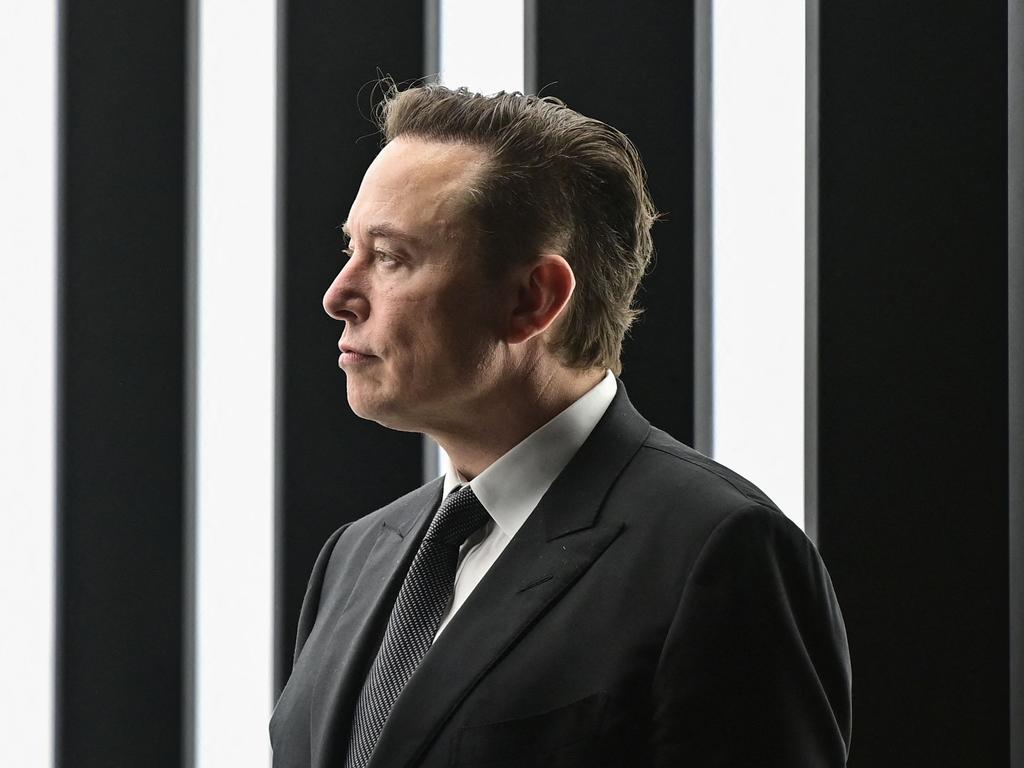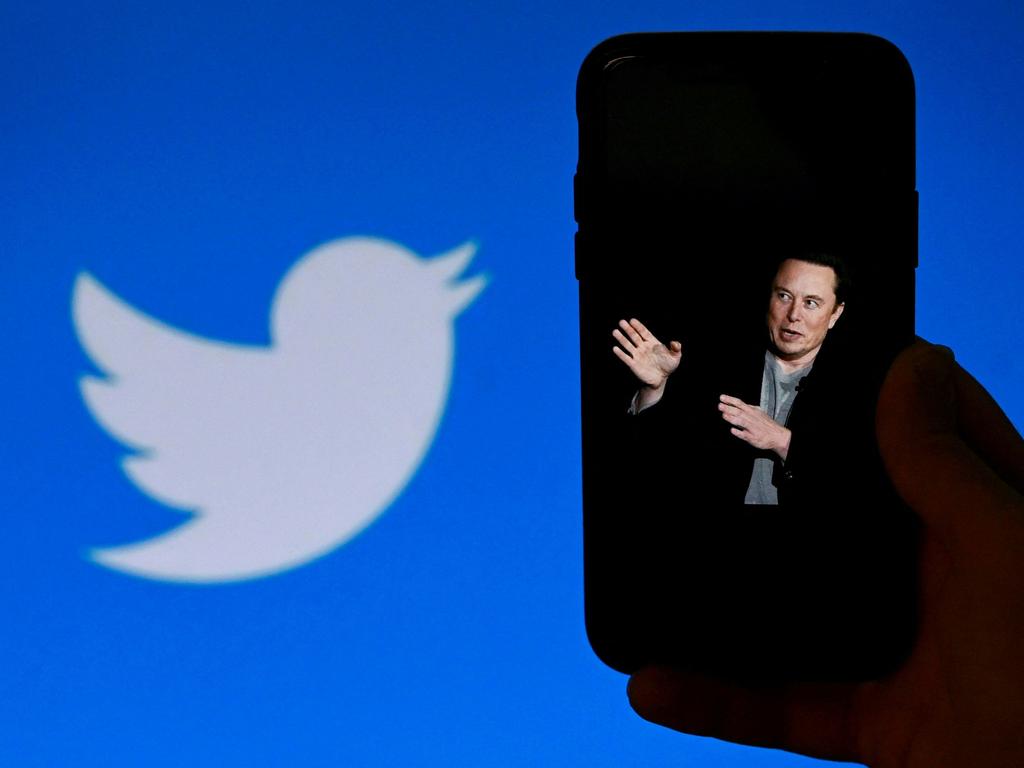Elon Musk’s Twitter changes too hard? Take your entitlement mentality elsewhere


I will not leave without saying goodbye. And I will miss many of you.
— Eric Idle (@EricIdle) November 4, 2022
Still, I thought, Idle is nearly 80 and that’s not a bad innings. I confess my mind had already turned to the entertaining eulogy to follow, hoping one of his fellow Pythons would deliver it. That said, it would be difficult to top John Cleese’s oration at the funeral of fellow Life of Brian co-star Graham Chapman in 1989. “Good riddance to him, the freeloading bastard,” said Cleese. “I hope he fries”.
But Idle, at least for now, will not be frying. It turns out I had misinterpreted his lamenting, which was his way of saying he intends leaving Twitter. His reason? Because the platform’s new owner, Elon Musk, has announced that accounts such as his bearing the complimentary blue verification tick will have to pay US$7.99 a month for the privilege.
Previously blue ticks were strictly reserved for the very important and prestigious. That includes many names we would not recognise, although I hasten to say that is ignorance on our behalf. We are talking actors, politicians, commentators, and journalists. Now, however, anyone can get this symbol for their account, provided they pay the fee and satisfy the verification process. The enormity of this must not be underestimated. It means cultural elites and the intelligentsia can no longer be readily distinguished from the common folk.
They have, not surprisingly, taken this news badly. “They should pay me,” author Stephen King tweeted indignantly last week, saying he would close his account if the proposed fee (then US$20 per month) was instituted. To summarise, King’s idea of a horror story is having to pay a fee equivalent to 0.000004 per cent of his total wealth.
$20 a month to keep my blue check? Fuck that, they should pay me. If that gets instituted, I’m gone like Enron.
— Stephen King (@StephenKing) October 31, 2022
Terrible as that may be, it is nothing compared to the other plans Musk has for Twitter. He is a self-described free speech absolutist. The mere mention of that term is problematic in a society where activists rail against so-called hate speech and demand the suppression of dissenting views on the spurious and euphemistic grounds of ensuring a “safe space” for minorities.
I'm shocked and appalled at some of the "free speech" I've seen on this platform since its acquisition. Hate speech under the veil of "free speech" is unacceptable; therefore I am choosing to stay off Twitter as it is no longer a safe space for myself, my sons and other POC.
— Toni Braxton (@tonibraxton) October 29, 2022
They claim Musk will turn Twitter into a haven for disinformation, bullying, and abuse. You know, just like it is now and has been for years. But that was fine because those operating the platform were hostile to conservative views. In 2018 Twitter co-founder and then CEO Jack Dorsey freely admitted that the organisation and its employees were “more left-leaning” but still insisted that objectivity prevailed. “We do not look at content with regards to political viewpoint or ideology,” he told CNN.
Except when that content is detrimental to the Democratic presidential candidate, he should have added. In the month before the 2020 US election Twitter suspended the New York Post’s account for a fortnight when the masthead published details of Hunter Biden’s business dealings that were obtained from his discarded laptop. Attempting to justify this censorship, Twitter claimed the Post had contravened a policy prohibiting “content obtained without authorisation.” As the Wall Street Journal noted, this was an absurd excuse given leaking is fundamental to political scoops.
It is not just ideologues who loathe and fear the thought of a revamped Twitter dedicated to free speech. So too do repressive governments and nanny state supranationals. Witness the menacing words from EU commissioner Thierry Breton in October when Musk, having acquired Twitter, enthusiastically tweeted that “the bird has flown”.
“In Europe, the bird will fly by our [EU] rules,” Breton audaciously tweeted in response. If only Musk had given this officious git the bird in return.
👋 @elonmusk
— Thierry Breton (@ThierryBreton) October 28, 2022
In Europe, the bird will fly by our 🇪🇺 rules.#DSAhttps://t.co/95W3qzYsal
The threat is not a libertarian-style Twitter: rather, it is governments that increasingly regulate online content. Addressing the UN in September, New Zealand prime minister Jacinda Ardern spoke of the need to combat “prolific disinformation and manipulation of whole communities and societies”.
“As leaders, we are rightly concerned that even those most light-touch approaches to disinformation could be misinterpreted as being hostile to the values of free speech we value so highly,” she said. “I can say with complete certainty that we cannot ignore it. To do so poses an equal threat to the norms we all value … How do you tackle climate change if people do not believe it exists?” she asked rhetorically. That is all the evidence you need to see how Ardern’s public commitment to free speech stacks up.
It is the same attitude that defines Australia’s arts and literary circles. In a lengthy series of tweets last weekend, author Marieke Hardy spoke of her “grief” at Twitter’s “big chaotic transitional period,” saying she was originally drawn to the platform by a “powerful exchange of words”. If that is the case, then surely she would be welcoming Musk’s reforms instead of bemoaning them?
There's a grief now in this big chaotic transitional period, and I want to surrender to what's likely about to be lost. I hope we can all find a way to connect again. I'm exploring options like everybody else. But it will be different, and maybe that's ok. Nothing is infinite.
— Marieke Hardy (@mariekehardy) November 4, 2022
The powerful exchange of words she craves is that of an echo chamber. As artistic director for the taxpayer-subsidised Melbourne Writers’ Festival in 2018, Hardy not only ensured it was a leftist lovefest but also refused to invite author Germaine Greer. A now renegade feminist, Greer is shunned by her peers because of her views, including her belief that trans-women are not women. Hardy tried to rationalise her exclusion by saying she did not want to put more “hurt” into the world. Sound familiar?
As for those of us who remain on Twitter, we will have to cope without the luminaries who have left in protest. People like model Gigi Hadid, and actor Alex Winter, who appeared in Bill & Ted’s Excellent Adventure in 1989. Steel yourself, there are more. He is joined by Marina Sirtis, who played Counsellor Deanna Troi in Star Trek: The Next Generation. Remember these names, because doing so could win you a trivia competition one day.
No one is forcing you to stay on Twitter. No one is compelling you to read the tweets of those you detest. If you can cope without the blue tick, you can continue to use the platform for free. But if that is too hard, then take your entitlement mentality elsewhere. In short, good riddance to you freeloading bastards.
More Coverage
Must say, I didn’t foresee that Twitter would crash and burn so dramatically.
— The Cathy Wilcox (@cathywilcox1) November 8, 2022
“Free speech†champion playing whack-a-mole to punish anyone who ridicules him, because he’s the boss of everyone now.
It’s like a weird parallel Murdoch universe, now I think about it.
Twitter, explained in 15 seconds pic.twitter.com/4dp4qytgwf
— David Hobby (@strobist) January 10, 2022







Having been a Monty Python fan in my youth, I was disappointed to learn last weekend that Eric Idle is about to snuff it. “I will not leave without saying goodbye,” he tweeted. “And I will miss many of you.” He was hilarious in his day, best known for his irreverent ditty ‘Always look on the bright side of life’ as featured in the crucifixion scene in Life of Brian.